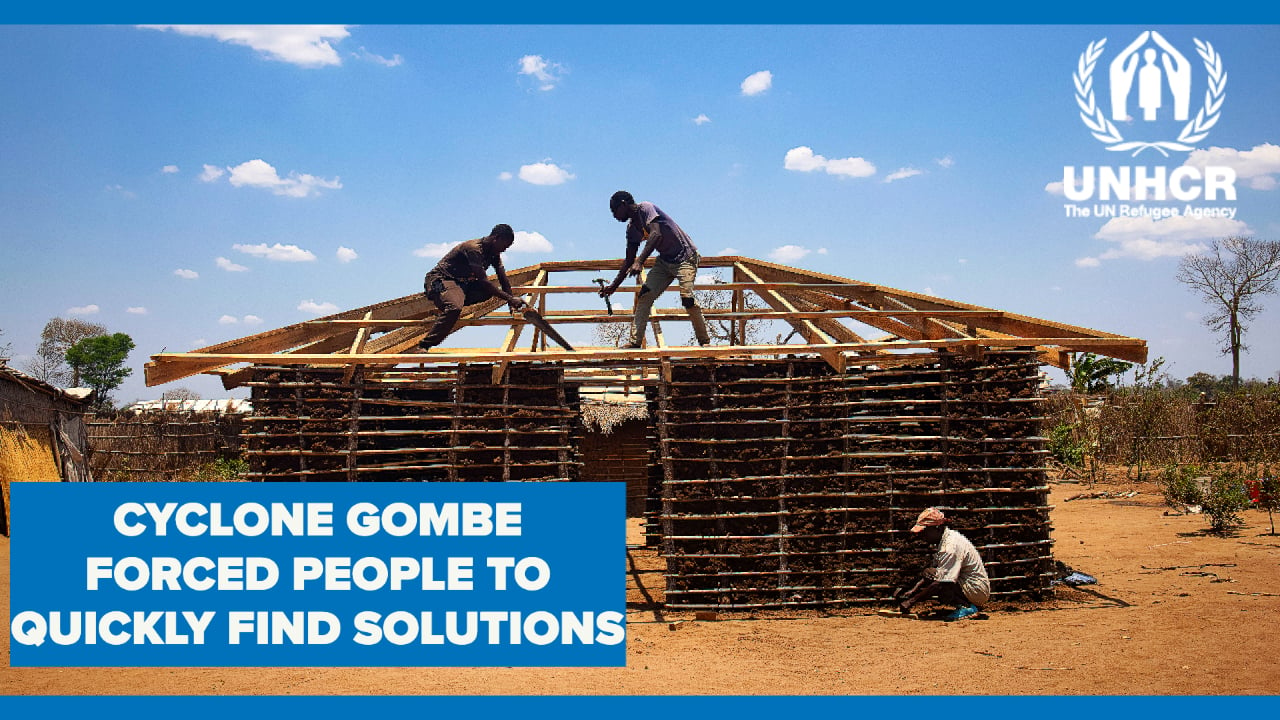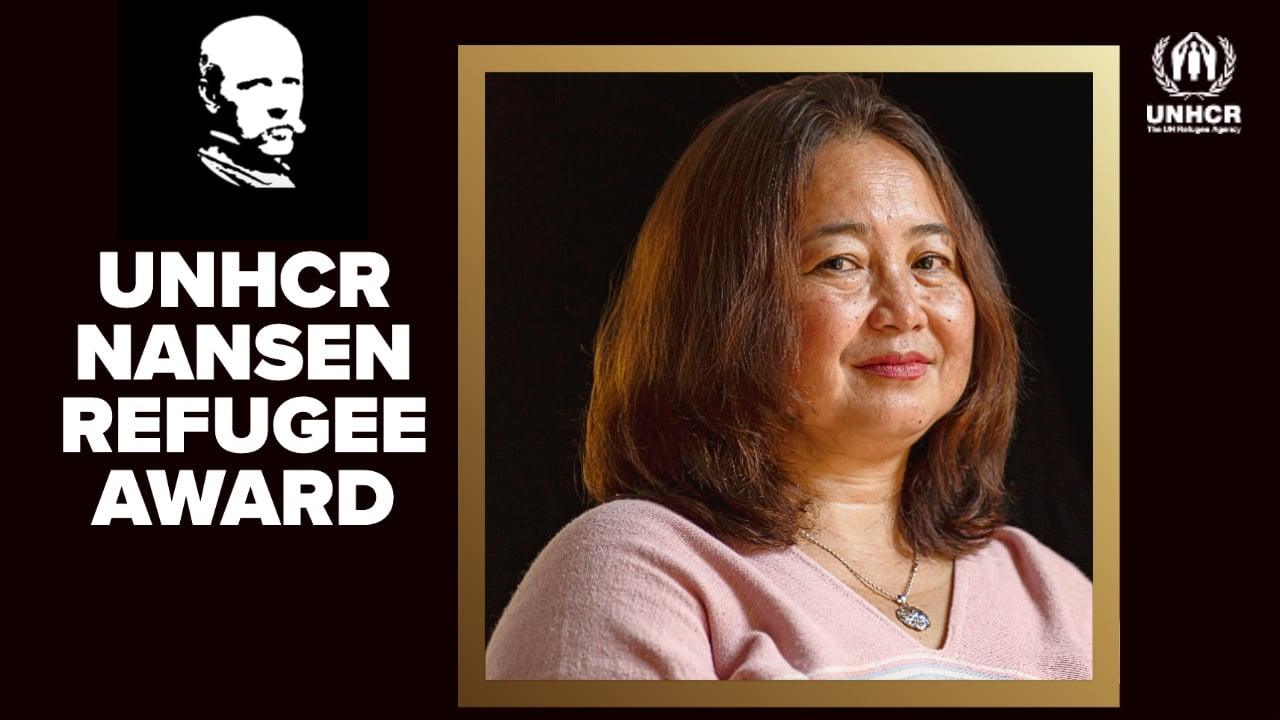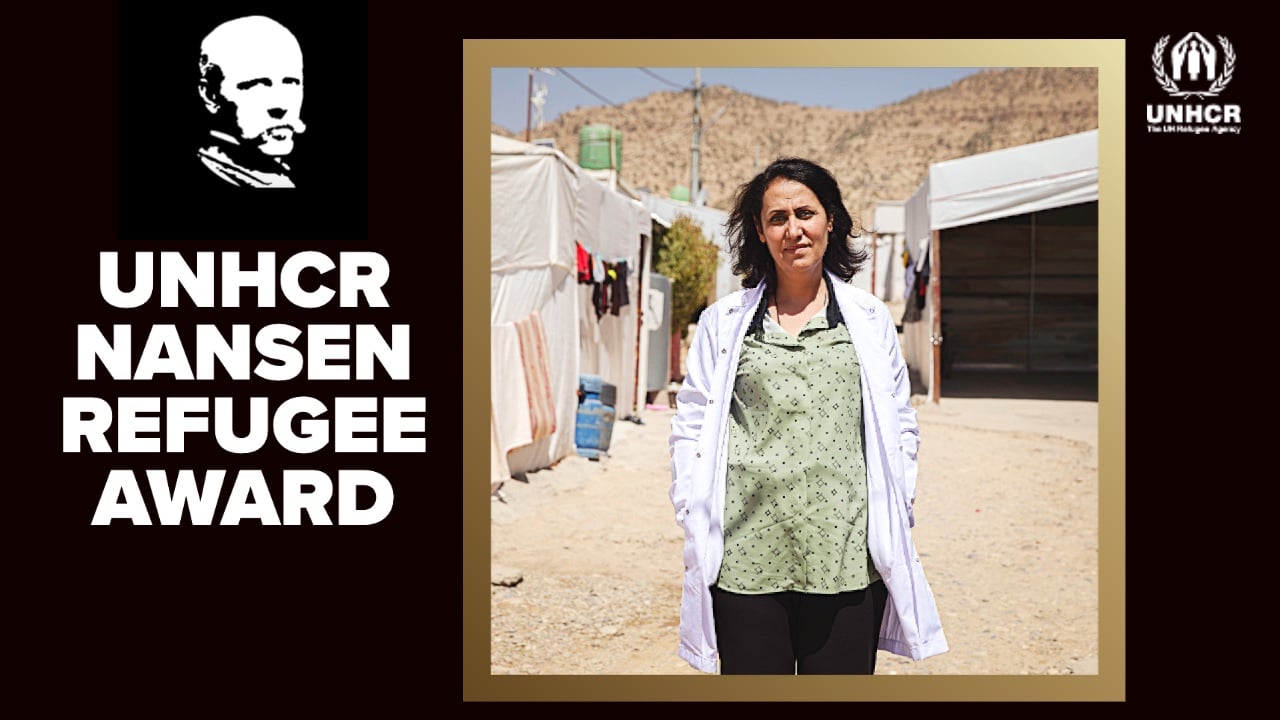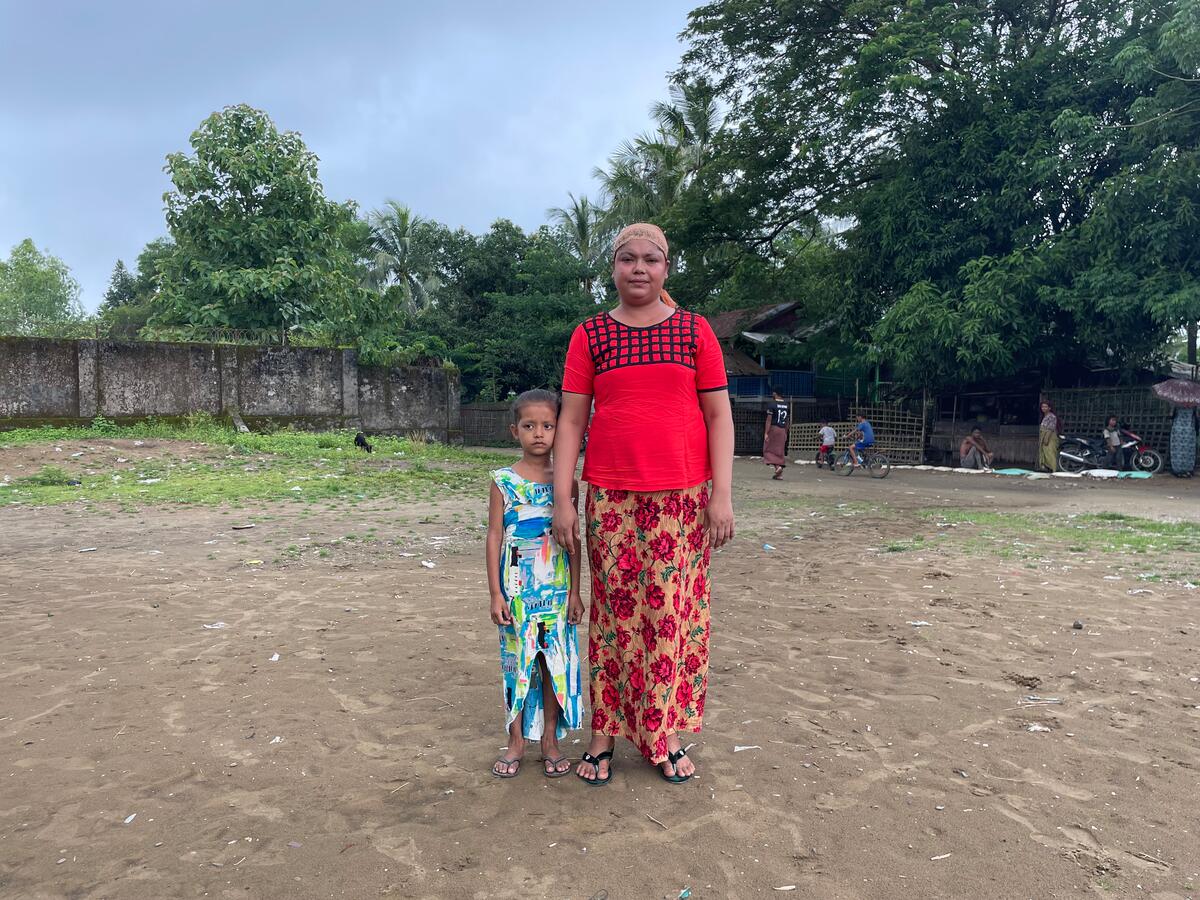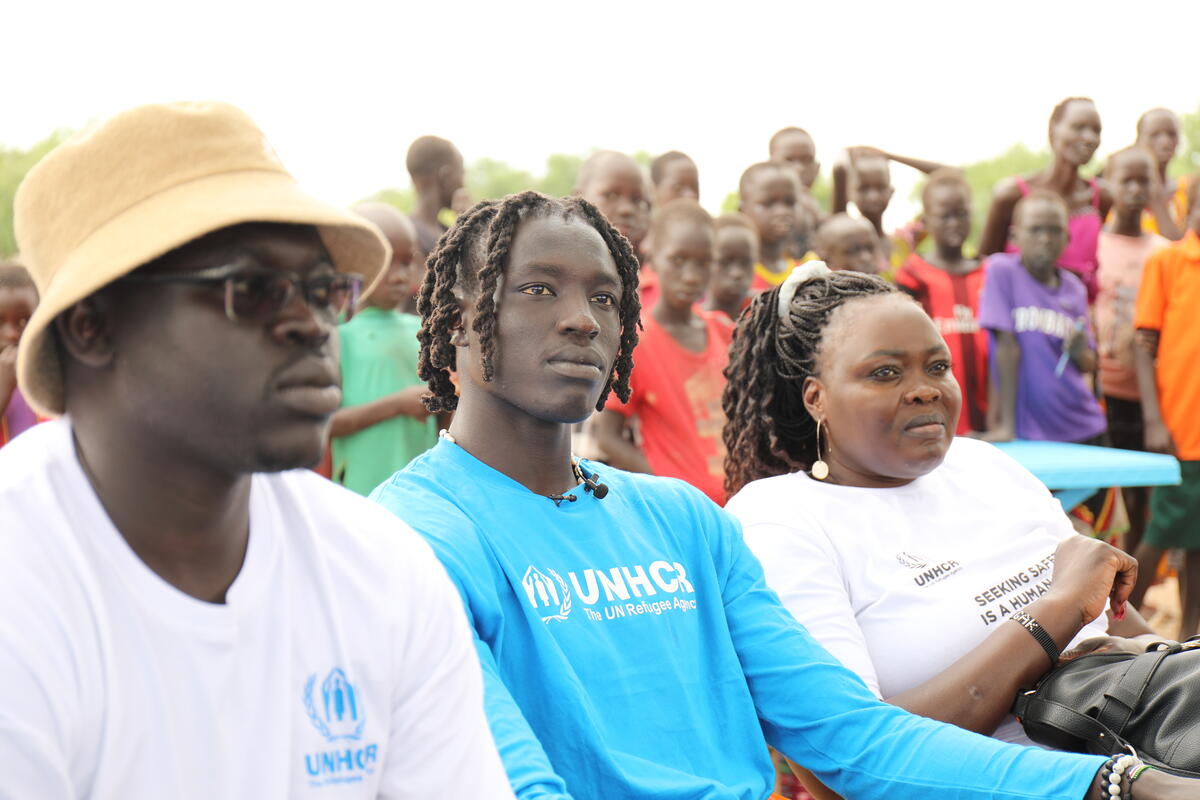Coexisting in Congo: rivals set an example for peace in Katanga village
Coexisting in Congo: rivals set an example for peace in Katanga village

MUKONDO, Democratic Republic of the Congo, December 15 (UNHCR) - A bitter row over adultery earlier this year in the heart of Africa triggered conflict between the Luba and Twa people, leaving many dead and forcing thousands to flee for their lives.
But in the Mukondo site for internally displaced people, members of the rival communities live together peacefully - a unique example to their battling brethren in Democratic Republic of the Congo's troubled Katanga province.
"We came here because of the war," Sango Shabani, a 33-year-old Twa, or Pygmy, told recent UNHCR visitors in Mukondo, which since March has been providing shelter to some 1,300 displaced people. They fled their villages when violent clashes erupted between the Luba (Bantu) people and the Twa.
A large group of Twa decided to make for Mukondo after the Luba chief of the village of 1,000 inhabitants offered shelter to displaced members of both communities. "We fled because we did not want to fight. We came here without arrows, without anything. We went to the chief, who welcomed us. We first lived with host families and then the chief let us build [homes on a site next to the village]," Shabani, a Twa leader, explained.
Some nine months after their arrival, the site for internally displaced people [IDP] appears peaceful and orderly, with traditional mud houses intersected by alleys. UNHCR plastic sheeting protects the homes from the rain. Women pound cassava and children play happily. Violence seems a long way off.
But the situation elsewhere in the province remains tense. Shabani says the conflict began in a village called Nsange. "It was first a problem of adultery. A Luba man had sex with a married Twa woman. Her husband discovered that she was pregnant," Shabani said adding that the woman confessed to having sex with a Luba.
The ensuing fighting, as well as combat in recent months between government forces and secessionist Mai Mai militia groups, forced more than 70,000 people to flee their homes, pushing the total number of internally displaced people (IDP) in Katanga past 600,000.
But while a case of adultery may have triggered the latest wave of conflict, the longstanding tension between the communities has deeper roots. The minority Twa community has always been marginalized, manipulated and treated by other communities, particularly the Luba, as inferior and this has stoked resentment. Moreover, they have no voice in local government to represent their interests and air concerns.
In a bid to ease the tension and restore peaceful co-existence, UNHCR and rights organizations working in the Democratic Republic of the Congo have been advocating for the recognition and protection of indigenous and minority rights, especially for the Twa community. UNHCR's implementing partner, Search For Common Ground, has organized activities - including participatory theatre and cinema shows - to help reconcile the Luba and Twa communities.
Mukondo is an example of what could be, and is demonstration of the desire for peace that many Luba and Twa have. But other IDP camps reflect the deep divisions and antagonism that still exist.
The Kanteba site in Katanga's Manono territory hosts more than 2,000 displaced people. No Twa are welcome there. Residents claim that many of the womenfolk had been gang raped before fleeing their villages. They said that, in August, the Twa reportedly kidnapped 15 women and raped them every day for about two months.
"Since we arrived here, no woman has been raped. But there [in our villages], many women have been raped by the Pygmies. For us Luba, the Pygmies are our big enemies," added Generose* in the Kanteba IDP camp.
In Kalama, Luba live in the village and a group of displaced Twa live nearby in very harsh conditions, with some people living in very simple shelters with just a few leaves as cover from the rain. Another group of Twa fled from Kasonsa and now struggles to get access to food and basic services.
People in these sites need help. UNHCR has provided emergency shelter in Kanteba, but many sites are difficult to access. Conditions in Mukondo are also tough with the nearest health centre more than 20 kilometres away the nearest water source about 10 kms from the village.
But there is a real spirit of solidarity between the Luba and Twa who live there. People like the Twa leader Shabani try to explain it by saying that they have a shared abhorrence of conflict. Some humanitarian workers put it down to the success of awareness raising in the area on the rights of indigenous people and the need for peaceful cohabitation.
And for now, people feel safe in Mukondo. "Some calm has been restored in our home village, but inter-communal tensions are still there. It's better to stay here. Here we are welcomed and we live well together," Shabani concluded.
*Name changed for protection reasons.
By Céline Schmitt in Mukondo, Democratic Republic of the Congo


